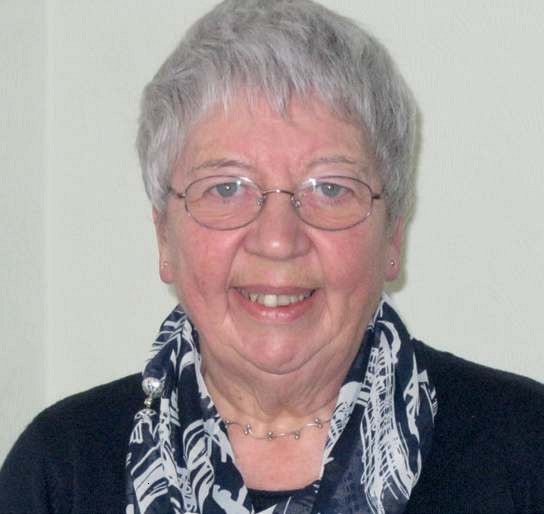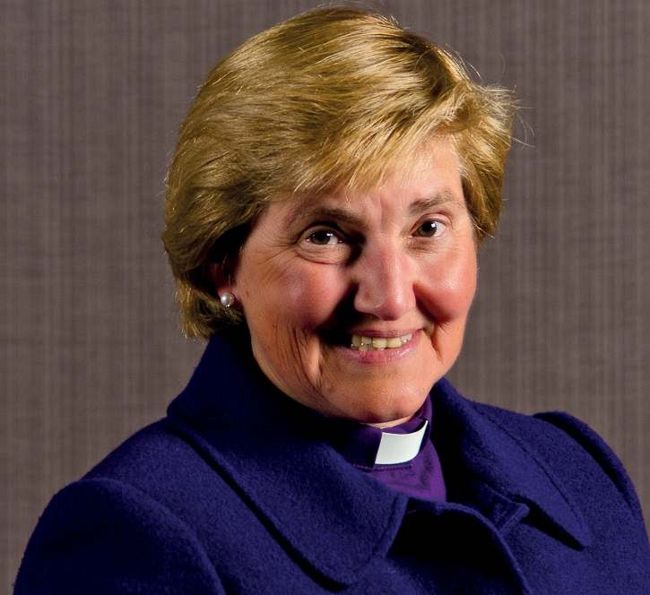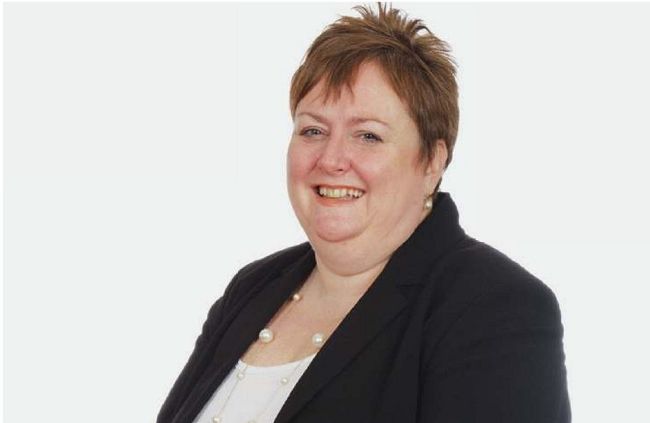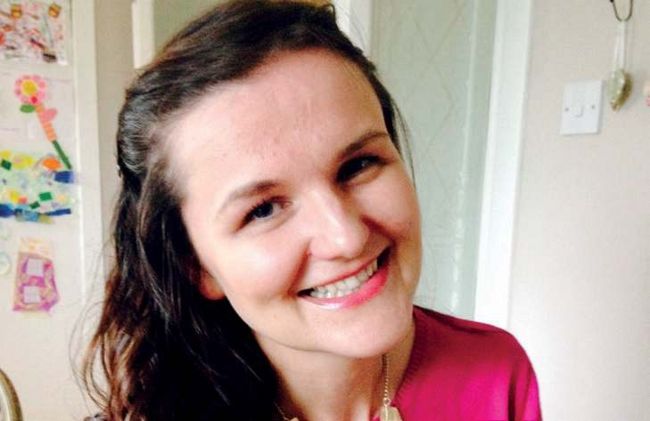The Journey
Female ministers reflect on their journey after the historic decision to ordain women as ministers within the Church of Scotland.
COVER
The Rev Jean Montgomerie was the first woman convener of the Board of Ministry of the Church of Scotland.
“Aged 18, thanks to the courageous eff orts of Emily Pankhurst and others, I was entitled to vote. Aged 22, thanks to the courageous eff orts of Mary Lusk and others, the possibility of becoming an ordained minister in the Church of Scotland was open to me and, on January 11 1973, just a few days short of my 27th birthday, I was ordained and inducted as parish minister of Peterculter Kelman Memorial – a huge shock to the system not just for the congregation, but also for me. What was I doing? Well, the idea always had been that I would only ever be happy in life doing what God wanted me to do, and this was where he led.
Understandably, there were those who had issues with a ‘woman’ minister, but I had resolved to believe that this was no diff erent from folks having issues with other aspects of an individual’s character, personality or appearance. And so, with the immense goodwill of the majority of the congregation I established that there were lots of things in ministry I could do just as acceptably as a male, and others where the female perspective seemed to be appreciated.
“Throughout the 70s and 80s the Church of Scotland, both centrally and at Presbytery level, sought to ensure that there was a female perspective injected into Committees and I was involved in various roles until in 1988 I was appointed the first ‘Woman’ Convener of a General Assembly Board – in my case the Board of Ministry. This was a very rewarding time in my life, and, supported by my congregation, and the Rev Bill Nicholson, who became my ‘minister assisting’ at Peterculter, I served in that role for six years. During this period, I recall once going on a deputation to the Western Isles, when the Moderator of Presbytery announced that the Rev Alexander McDonald, General Secretary of the Board of Ministry would address Presbytery and Sandy replying: ‘actually, Moderator, it will be the Convener of the Board of Ministry, the Rev Jean Montgomerie who will address Presbytery this afternoon’. Communal sharp intake of breath; wry smile, and ‘get on with it, Montgomerie’ (she who, despite having to jump in and out of various small boats during that visit persevered with wearing a skirt!).
“The work of the Board of Ministry gave me an excellent opportunity to affirm those who are called to the full time ministry of Word and Sacrament, and to realise how much importance congregations placed on that particular role. Such affirmation should not compete with our understanding of the ministry of the whole people of God, unless, as I have detected over the last fifty years or so, that phrase is interpreted in a much narrower sense than its scriptural roots propose. Surely, all Christian service comes from being a part of the Church community where one is encouraged and strengthened in faith, but also equipped and empowered to share that faith. Some will hear a call to full time service, others to part time, while others will be sent out to share that faith as they pursue other occupations – not pressed into a narrower understanding of ministry ‘within’ the Church community. Such a ministry of the whole people of God has the potential for powerful mission.
“The privilege of convenership, of parish ministry in Peterculter, and, subsequently in Forfar: St Margaret’s (during which time I served as convener of the Board of Communication) saw me complete a very fulfilling period of service to the Church of Jesus Christ – and, I trust, to my Lord.”
The Very Rev Dr Lorna Hood was the first female serving parish minister to be elected Moderator of the General Assembly of the Church of Scotland in 2013.
“It was May 1979 and the shops and streets of Renfrew buzzed with the news that the North Church had chosen a sole nominee. Such news was quickly followed up with the question – “A wummin?” “Wis there naebudy else?” The day approached of the ‘preaching’ to the congregation and a packed church prepared to vote by standing to either accept or reject this young 26-yearold woman minister. The outcome I was told was overwhelmingly in favour – no counting or secret ballots in those days – and I was duly inducted to the charge of Renfrew North on June 26 1979 where I remained until I retired in October 2016.
“Looking back, reflecting on this 50th year of the anniversary of the ordination of women to the ministry, I wonder just how much things have changed since those early days – for better or worse.
“I must begin by saying that my journey was a relatively easy one. After that initial apprehension life in the parish revolved round worship preparation and pastoral care. I have always loved preaching and counted it a privilege to share in all the joys and sorrows of my congregation. Something which I very much miss now in retirement. Having a ‘woman minister’ became a source of pride and a few years down the line one elderly lady told me she had a confession. “I voted against you”. Adding very quickly, “But I wouldn’t change you for the world.”
“Looking back, I can only smile at the questions the vacancy committee asked. Engaged to be married, I was asked if I planned to have children and if I did who would look after them. Much as we are aghast at these questions now many women were asked similar questions in numerous other professions. When I did get pregnant some five years later the congregation clapped at the announcement and queued up to do the babysitting.
“‘Maternity Leave’ was something the church had not dealt with before and, after some ad hoc arrangements which usually consisted of the then Maintenance of the Ministry Committee saying: “Phone Lorna Hood and find out what she did”, the Assembly accepted that regulations should be put in place. Attending that first meeting of the Committee, one senior minister said that our objective was to do the very best for our woman ministers and in its time and in comparison, to other professions, it was.
“In her autobiography A Journey of Faith the Rev Effie Irvine, the first woman to be inducted into a parish, speaks about the sadness when ministerial friends no longer spoke to her or her husband once she had decided to apply for Selection School. That was not my experience. Paisley Presbytery had a number of younger ministers with whom I had studied and in fact I had been at school with Bill Hewitt. I never felt I wasn’t treated as an equal. Indeed, it was more a young faction up against an older group unwilling to accept change.

The Rev Jean Montgomerie

The Very Rev Dr Lorna Hood
”It was only during my year as Moderator that I truly thought about prejudice and the experience of some women over these last fifty years and that is to my shame. The shortage of ministers has meant that very few ministers male or female wait any length of time to be called to a charge. However, the experience of women ministers diff ers throughout the country and there are still pockets where prejudice due to gender still applies and I’ve been saddened when I hear some of the stories. Perhaps we reflect a society where as women we have travelled a long way but still have a long way to go.”
The Rev Fiona Mathieson is minister at Edinburgh: Carrick Knowe.
“We have come a long way since I tried to pay in one of my first expenses cheques and was told that the bank couldn’t pay it into my account. When I asked why, I was told that I couldn’t pay a cheque made out to my Dad, the Rev F Buchan, ‘but I am the Rev F Buchan’, I replied. I still had to provide proof before the cheque was accepted.
“Thirty years later that would never happen as we live in a diff erent age, but 1987, when I was licensed as a minster, was such a diff erent time.
“My probation was at Greenbank in Edinburgh, where I was treated with respect and encouragement. The experience of being the Churches National Youth Adviser gave me a taste of the breadth of our Church, not just in terms of theology, but also in expressions of church influenced by the myriad of cultures which make up our country – there is no such thing as a ‘typical’ Church of Scotland. I was also told during this time by one young man that ‘if I thought I was called to ministry I must be unstable and in need of psychiatric help’ but he was the exception rather than the rule!
“Moving to Glasgow University as chaplain enabled me to really see just how accepting the church was, as for the first time my gender and age were a big issue and I faced challenging times. I came to appreciate the subtle support and encouragement I received from many people in the church, many of them in senior positions. In the mid-1990s stereotyped role models still needed to be confronted. Women in all professions and walks of life no longer simply accepted what was seen as their ‘role and limitations’. Thankfully unlike my friends in other professions many of the doors they found themselves pounding on had already been opened in the church.
“I learned that to change perceptions and expectations you had to simply get on with ‘the job’ to the best of your ability, trusting faithfully in God’s protection and guidance.
“Being female and a minister brought many opportunities, but paradoxically they were also challenging because once we had the opportunity we were under a great deal of scrutiny. It is only now with older eyes I can see the pressure that brought and I am quite amazed I survived to tell the tale!
“It wasn’t until the new millennium when I was applying for charges shortly after getting married that the full force of prejudice, particularly among the laity in the church, aff ected me. I was asked some astounding questions, by some nominating committee. I was powerless to respond lest I would be seen, as a wise experienced minister who I respected advised, as a ‘difficult strident woman’. But that is seventeen years ago.
“Now I am settled in a parish with over thirty years of experience – my gender is rarely mentioned. Yes there have been disappointments, things I have not been asked to do, was that because of my gender or because of me? I will never know.
“I think we have to be careful to ensure that we don’t hold on to past hurts rather than letting them go and looking to the future. Yes I have faced challenges but compared to the blind prejudice faced by those who went before me they are not worth dwelling on. I have been given opportunity to serve in so many diff erent ways and places, yes, there have been challenges but then that is part of a life fully lived. The experiences I have had and have been given, have been transformational. For that I am so very grateful to God, and to all those who have enabled and supported me.”

The Rev Fiona Mathieson

Lynsey Brennan, probationer minister
We know the gospel message is full of hope, love, acceptance and promise and this needs to be brought alive to all people by both men and women!
Lynsey Brennan is a probationer minister at Baldernock, lined with Milngavie: St Paul’s.
“After a period of discernment, I realised that God was calling me into full-time ministry of Word and Sacrament rather than chaplaincy or diaconal ministry. I assumed I’d need to put this ‘vision’ on hold as I was a mother to two young boys aged three and five. However, I spoke with someone from Ministries Council who encouraged me to continue to pursue my call and to perhaps speak with other women in the ministry about the training process.
“One such woman was the Rev Amanda McQuarrie who at that time was entering her period of probation and she had four children! Amanda gave me hope that if God has called you He will fully equip you but that sometimes we first need to step out of our comfort zones in faith. Amanda encouraged me to read the book by John Ortberg: If you want to walk on water you’ve got to get out of the boat. It’s a book that really helps you think about God’s purpose for your life and to consider the incredible potential that awaits you if you trust in God.
“So I entered the ministry training process and three or four years later I am now a probationer, serving within St Paul’s in Milngavie and Baldernock Parish Church with the Rev Fergus Buchanan. I now also have three children after having my third son during my final year at university. Malachi is 18-months-old and loves his older brothers: Samuel (9) and Ciaran (7). God has called me to be His child, a wife, a mother and a full-time minister of Word and Sacrament and I remember the order of this calling. What I’m learning is that these roles need not be conflicting but complementary.
“As a mother and a woman I feel I bring diff ering gifts and experiences to ministry. My children teach me every day about God and the simplicity and purity of their faith is something I greatly cherish and which feeds into my ministry. We need to say goodbye to the times when children were seen but not heard and embrace our children into the heart of the church family, demonstrating to our local communities that children and family matter. Today’s families struggle with the challenges of work, diff ering shift patterns and time pressures, which can all negatively impact on home life and raising children. This is an opportunity for the church to model how a Christ-centred church works in unity as a family, supporting, encouraging and building each other up in Christian love.
“St Paul’s in Milngavie has an amazing ministry to the local children and their families, within which they seek to clearly and simply say: we care for you, Jesus cares for you, we want you to come and share in our fellowship.
“Ministry for me means being aware that, despite the current decline of the church, the Missio Dei (mission of God) is still fully alive and we need to be in step with the Spirit to see where God is already present. We know the gospel message is full of hope, love, acceptance and promise and this needs to be brought alive to all people by both men and women!”